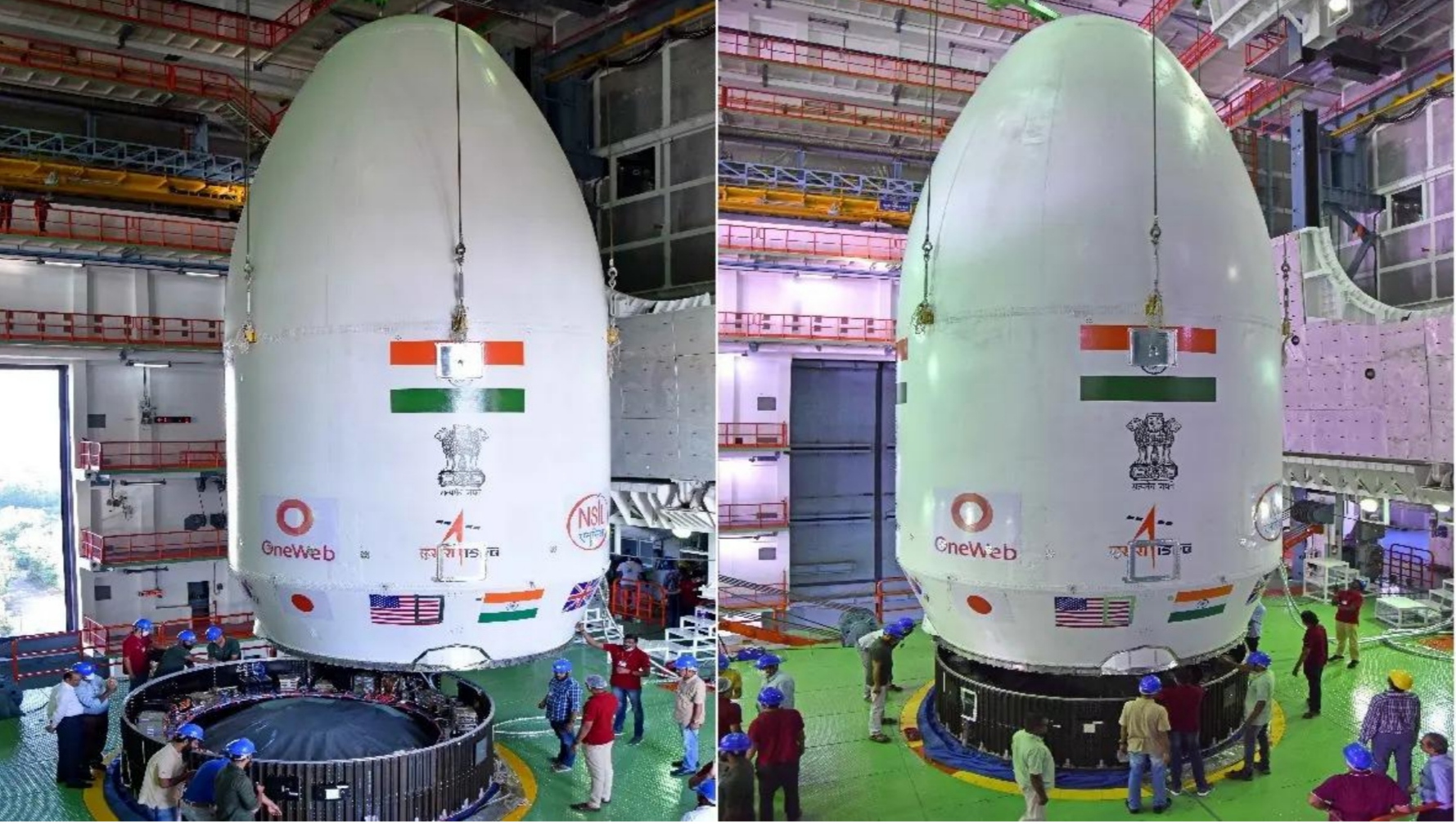India's space agency, the Indian Space Research Organisation (ISRO), is gearing up to launch 36 OneWeb internet satellites into space using its powerful Geosynchronous Satellite Launch Vehicle Mark III (GSLV Mk III) rocket. The launch is expected to take place on the 23rd of October 2023, and it will mark a significant milestone for India's space program and its aspirations to become a global leader in the space industry.
The OneWeb constellation is a low Earth orbit (LEO) satellite system that is designed to provide high-speed internet connectivity to people around the world, particularly in remote and underserved areas. OneWeb is a joint venture between the UK government and Indian telecom giant Bharti Global, and it aims to provide affordable, high-speed internet access to billions of people who are currently without reliable connectivity.
The 36 OneWeb satellites that ISRO will be launching are part of a larger constellation that is being built to provide global coverage. This is not the first time that ISRO has launched OneWeb satellites into space, as the agency has already launched 74 of them in previous missions. However, this upcoming launch is significant because it will be the first time that ISRO will be using its GSLV Mk III rocket to launch OneWeb satellites.
The GSLV Mk III rocket is one of the most powerful rockets in ISRO's arsenal, and it is capable of launching heavy payloads into space. It has been in development for many years, and its successful test launch in 2017 was a major milestone for ISRO. Since then, the rocket has been used in several missions, including the successful launch of India's Chandrayaan-2 mission to the Moon in 2019.
The launch of the 36 OneWeb satellites will be a complex and challenging mission for ISRO. The satellites will be launched into a polar orbit, which is a type of orbit that passes over the Earth's poles. This requires the GSLV Mk III rocket to follow a specific trajectory, which is different from the typical equatorial orbit that ISRO's rockets usually launch into. Additionally, the satellites will be deployed in a tight cluster, which will require precise timing and coordination to ensure that they are all placed in the correct orbit.
Despite the challenges, ISRO is confident in its ability to successfully launch the 36 OneWeb satellites into space. The agency has a long history of successful launches, and it has proven its expertise in launching satellites into various orbits. ISRO has also been actively working on developing new technologies and capabilities, such as reusable rockets and space-based surveillance systems, which will further enhance its capabilities in the space industry.
The launch of the 36 OneWeb satellites will be a significant milestone for India's space program and for the OneWeb constellation. It will demonstrate India's growing capabilities in the space industry and its ability to contribute to global initiatives such as OneWeb. The success of this mission will also pave the way for future collaborations and partnerships between India and other countries in the space industry, which will drive innovation and progress in space exploration and technology.
By-Rishav Vatsh




















